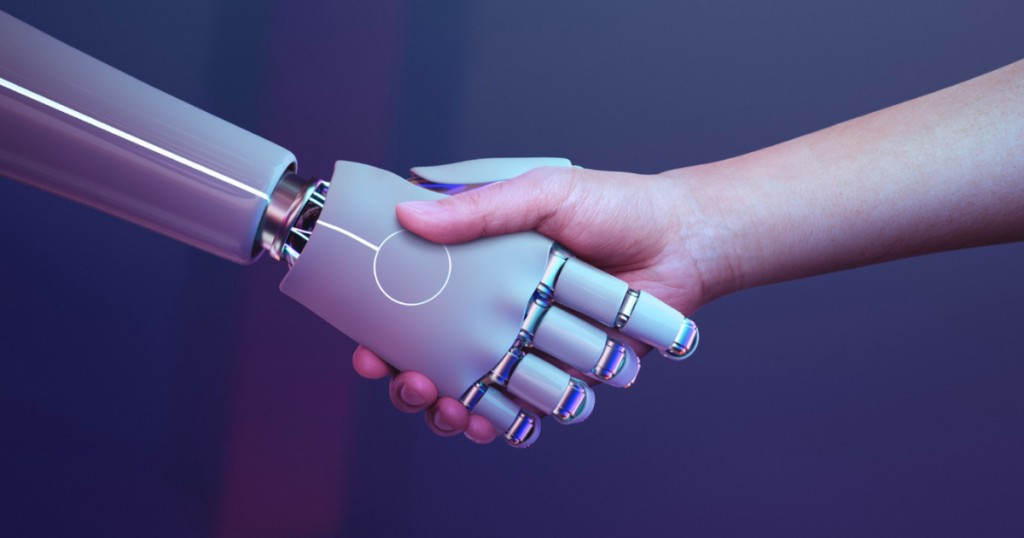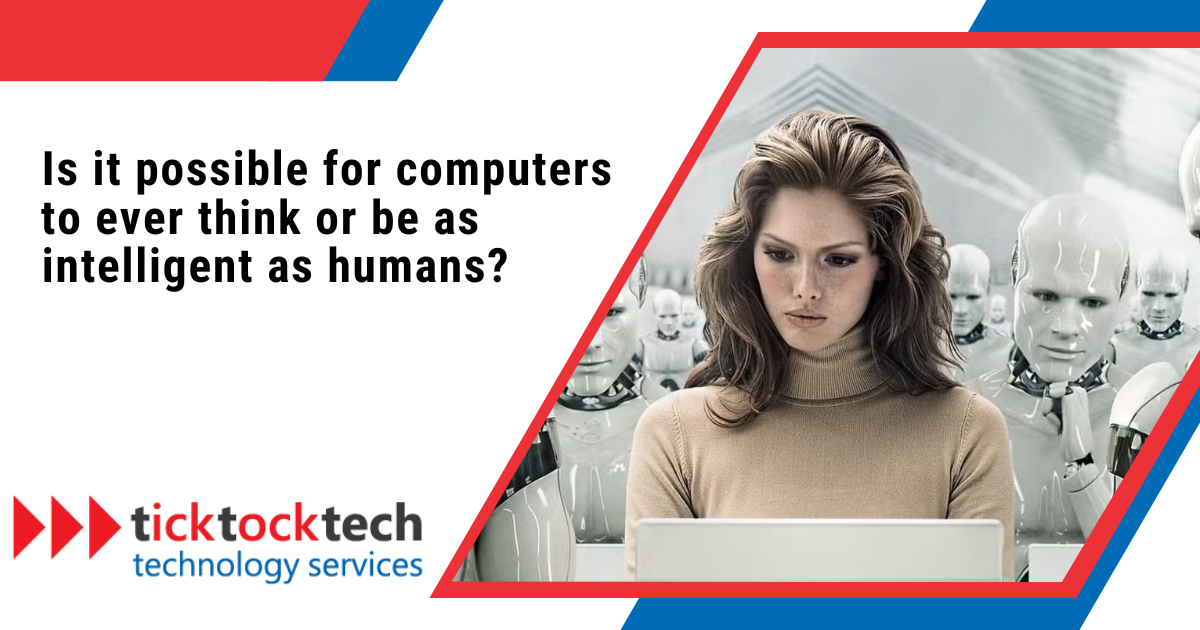Intelligence is a complex concept that philosophers and scientists have studied for centuries. On the face of it, there is no single definition of intelligence that everyone agrees on, but it is generally understood to be the ability to learn, reason, solve problems, and be creative.
In recent years, we have seen incredible advances in artificial intelligence (AI). AI systems can now perform many tasks that were once thought to be the exclusive domain of humans, such as playing chess, driving cars, and diagnosing diseases.
As AI systems become more and more sophisticated, it is natural to wonder if they will ever be able to think or be as intelligent as humans. It is an age-old question that has been debated by experts for many years, and there is no easy answer. This piece will explore the different perspectives on whether or not computers can be as ‘intelligent’ as humans and much more.
What is human intelligence?
There is no one-size-fits-all definition of human intelligence that everyone can agree on. That said, it is generally understood to be the ability to learn, reason, solve problems, and be creative. Human intelligence is also associated with other abilities, such as memory, perception, and language. These abilities are all interconnected, and they work together to allow us to function in the world.
There are many different theories about how human intelligence works.
One of the most popular theories is the cognitive abilities theory. This theory posits that intelligence is made up of a number of different cognitive abilities, such as working memory, processing speed, and problem-solving skills.
Another popular theory is the multiple intelligences theory. This theory posits that there is not one but many different types of intelligence, such as verbal intelligence, spatial intelligence, and musical intelligence.
While there is no single definition of intelligence, there are some key features that are commonly associated with human intelligence. These include:
- The ability to learn from experience
- The ability to reason and solve problems
- The ability to be creative and think outside the box
- The ability to use language to communicate and express ideas
- The ability to understand and adapt to new situations
Human intelligence is a complex and fascinating subject. There is still much we don’t know about how it works, but research so far has thrown light on some of the important qualities that make us human.
Related: Top 10 Artificial intelligent AI tools and platforms
What is Artificial Intelligence?
Artificial intelligence (AI) is a branch of computer science that deals with the creation of intelligent agents, which are systems that can reason, learn, and act autonomously. Over the last decade, AI research has been highly successful in developing effective techniques for solving a wide range of problems.
There are many different approaches to AI, but one of the most common approaches is machine learning.
Machine learning algorithms are able to learn from data and improve their performance over time without being explicitly programmed. This has empowered AI to handle intricate and time-consuming tasks.
Another important subfield of AI is deep learning. Deep learning algorithms are inspired by the structure and function of the human brain. They are able to learn complex patterns from data by using artificial neural networks.
Deep learning algorithms have achieved state-of-the-art results on many tasks, including image recognition, natural language processing, and machine translation.
AI is being used in a wide range of applications today, including:
- Self-driving cars
- Medical diagnosis
- Customer service chatbots
- Fraud detection
- Product recommendation systems
- Social media algorithms
- Spam filtering
- Machine translation
- Image recognition
- Natural language processing
Related: Elon Musk launches new AI company, xAI
Can Computers ever be as Intelligent as Humans?
Following all we’ve discussed till now, drawing a definitive link between a computer’s AI capabilities and human intelligence for comparison is not forthcoming. Simply put, there’s no easy answer to the question, and it depends on how you define intelligence.

Some people believe that intelligence is simply the ability to solve problems. Others believe that intelligence is more than that and that it also includes creativity, social intelligence, and common sense. If we define intelligence as the ability to solve problems, then it is certainly possible that computers could one day become as intelligent as humans. Computers are already able to solve some problems better than humans, such as playing chess and Go.
However, if we define intelligence more broadly to include creativity, social intelligence, and common sense, then it is less clear whether computers will ever be able to match human intelligence. These are aspects of intelligence that humans have evolved over millions of years, and it is not clear that computers can simply be programmed to replicate them.
The Turing test
One way to measure the intelligence of a computer is to use the Turing test. The Turing test was proposed by Alan Turing in 1950 as a way to determine whether or not a machine can be said to be thinking.
In the Turing test, a human evaluator engages in a natural language conversation with two other parties, one of which is a human and the other of which is a machine. The evaluator’s task is to determine which of the two parties is the machine.
If the evaluator cannot reliably distinguish between the machine and the human, then the machine is said to have passed the Turing test. No machine has yet passed the Turing test, but some experts believe that it is only a matter of time before a machine will be able to do so.
Challenges to developing human-level computers
There are a number of challenges to developing human-level AI. One challenge is that we do not fully understand how human intelligence works. We know some of the key features of human intelligence, such as the ability to learn, reason, and be creative, but we do not know exactly how these abilities are implemented in the brain.
Another challenge is that AI systems are often very specialized. They are able to perform very well on a specific task, such as playing games or recognizing objects in images.
However, they are not able to generalize their abilities to new tasks in the same way that humans can. Finally, there are ethical challenges associated with developing human-level AI. We need to ensure that AI systems are aligned with our values and that they do not cause harm.
Wrapping Up
Debating whether computers will match human intelligence is still uncertain. That said, the rapid progress that has been made in AI in recent years suggests that it is a possibility. In the same breath, there are a number of challenges that need to be overcome before human-level AI can be achieved.
Intelligence is not just about being able to solve problems. It is also about being able to understand and interact with the world around us. Humans have a deep understanding of the world that is based on our experiences and emotions. It is unclear whether or not AI systems will ever be able to develop the same level of understanding.
At the end of the day, the question ‘Is it possible for computers to ever think or be as intelligent as humans?’ is a complex one that is likely to be debated for many years to come.

